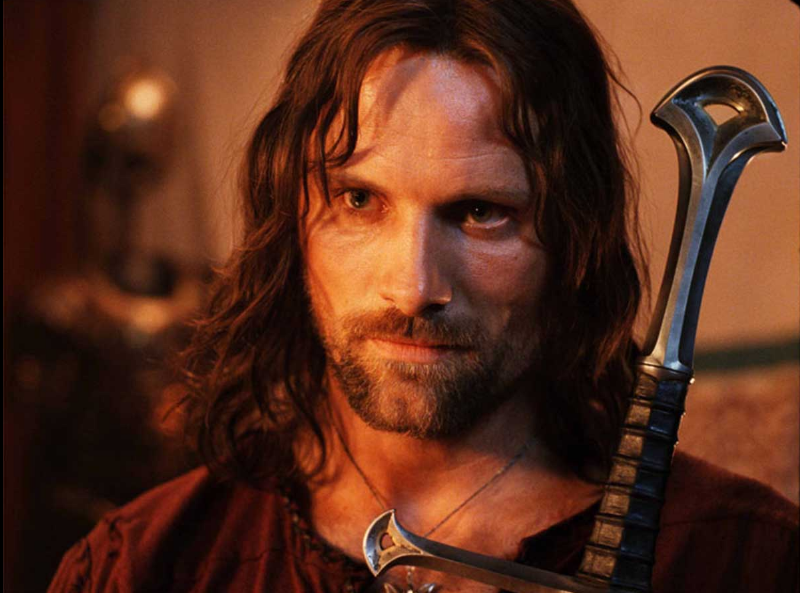The identity of the United States has always been nurtured by strong contradictions. One of the most curious lies in its own idiosyncrasy as a settlement territory. In the place where so many settlers and people came from all over in search of the promised land, to the point of taking their regions and homes from the native Indians with fire and blood, a whole population phenomenon arose contrary to settling in a single space , definitive. With the construction of the great North American society, that melting pot exemplified in dozens of states with their characteristics, laws and customs, therefore, another
very different
counter-
society germinated
. A
counter-society
on the move, unable to adapt to the American capitalist system.
The
recently Oscar-winning
film
Nomadland
refers to this
counter-partnership
. In such a poor year for cinema, it is a joy at least that Chloé Zhao's film was the big winner. Not only for the poetry of its images and those roaring landscapes, but for putting on the table a phenomenon that has never completely disappeared in the United States since the 19th century, when capitalism transformed the economic system driven by the industrial revolution.
Nomadland,
inspired by the book
Nomad Country
(Captain Swing), an exhaustive journalistic chronicle about the survivors in the USA of the 21st century written by Jessica Bruder, refers to the
hobos
of our times, those brothers of the road who do not reside anywhere because they reside everywhere. Like Frances McDormand in the movie, they take home with themselves.
Hobohemia was nothing more than a counterculture at the end of the 19th century, but in the sense that it managed to establish itself little by little as an authentic parallel society, endowed with certain norms, jargon and legal and illegal knowledge. Forged by indigenous migrant workers, the hobo culture was nourished by the alliances between its participants, beings who respond equally to failures of the capitalist system as to their desire to break with territorial terminations, some as miserable as that of the overcrowded neighborhoods of the great metropolises. In this way, in
Nomadland
the
hobos
that, hidden in the freight cars, traveled by rail (whose development at the end of the 19th century was immense in the US)
are replaced
by
hobos
that are moved in vans or caravans. They all have the same itinerant life between precariousness and freedom.
A few years ago, the Pepitas de Calabaza publishing house published one of the best books to understand hobohemia:
Boxcar Bertha, the autobiography of a sister on the road.
The book was really the fictionalized experiences of Ben Reiteman, a true hobo that offered through a female character an intimate vision of the tidal wave of proletarian vagrants that flooded this counterculture. Because the
hobos
were people subjected to the hazards of the job market. His experience developed above all in periods of crisis of capitalism, as in 1873-1878 or in 1893-1894. From there, it coincided with the mythology of the road and the
Wanderlust
(desire to wander), so typical of late nineteenth century folklore. Wanderers who made virtue out of their need. Much of Jack London's ideology would also link to all this.
Most of the reviews I've read have compared
Nomadland's
characters
to the vagabonds of the Great Depression, so magnificently described by John Steinbeck in
The Grapes of Wrath.
It is understood, but I think it is more correct to spin them with the
original
hobos
. They are voluntary itinerant workers, without being forced, as in the case of the day laborers of the North American East and Midwest, expelled from their lands in the 1930s, to whom Steinbeck dedicated newspaper articles and a fabulous novel and Dorothea Lange portrayed for posterity . Both of them, those of the 19th and early 20th centuries and those of the 21st century, constitute a periphery of the sedentary working class. As it is written in the prologue of
Boxcar Bertha,
they are all part of what Marx called a “reserve army” of capitalism: itinerant workers, seasonal workers. Only in the case of the vagabonds of the harvest of the Great Depression, there is no philosophy behind it. As there is in the
original
hobos
and in the current ones, as seen in the movie and read in the book by Jessica Bruder.
The hobo philosophy is part of the countercultural movement. To such an extent that Ben Reiteman went so far as to found a
Hobo College
in Chicago in order to turn it into a place of moral reeducation, marked by North American philanthropy, proletarian brotherhood and self-realization. This philosophy can be seen in some way in those workers on the move who welcome Frances McDormand, travelers who are true
hobos
in real life and who live with actors in the film. However, unlike the ancient anarchists or syndicalists, the
hobos
they do not seek labor transformation or political activism to balance the system.
They do not seek to improve it in favor of the workers and day laborers.
They simply seek to adapt in their experience of greater freedom and self-realization.
Hobohemia has never quite gone away.
Woody Guthrie, the fierce American singer-songwriter, was a hobo.
He composed songs dedicated to them.
But Guthrie was a class-conscious hobo.
A true social and political fighter.
He lived like a hobo, but talked and cheered like an activist.
He was not the only one who sang to them.
Even Bob Dylan, so influenced in his early years by Guthrie, did.
Without this hobo philosophy, the
beat
generation would not be understood
.
No longer just a work as influential as
El camino
of Jack Kerouac but all the ideology of America of Allen Ginsberg, William S. Burroughs or Gregory Corso.
In the countercultural flourishing of the sixties, hobohemia was still latent, as it later was in some alternative intellectual precepts of reaction to the fierce American capitalist system.
With all its symbolic charge and intimate gaze,
Nomadland
once again shows a parallel society that seeks its place on the underside of the American dream.
A precarious society, although with a certain and valuable dignity.
A society of internal migrants.
Of brothers of the road.







/cloudfront-eu-central-1.images.arcpublishing.com/prisa/3OWRFBUW6YU2RNAG4WQT4MERRI.jpg)

